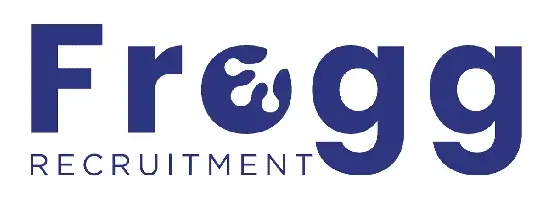Advice and tips on how to ace a Job Interview
Are you seeking advice and tips on ace a job interview?
Applying for jobs is the easy part, job seekers would say. The process of applying for an available vacancy and getting the interview. Finally, how the get the job offer (how to get the job offer will follow in a follow-up article).
How to start – A resume or a Curriculum Vitae, is much more preferred. A well-written CV is still the most accepted form of applying for a vacancy.
With that said, we will focus on some of the BIGGEST mistakes and BEST tips we have found in jobseekers. This list is not the ‘be all and end all’ of how to compile a great CV. It will go a long way in making sure your CV is noticed. Hundreds of CV’s are re-screened daily by HR personnel and Recruiters (also called ‘screeners’).
IMPORTANT FACTORS TO TAKE INTO CONSIDERATION WHEN CONSTRUCTING A “RESUME” OR “CV”
RELEVANCE
There is nothing more frustrating to the screener than to open the CV of an applicant that has absolutely NO chance of being invited for an interview. The reason might be that the applicant possesses none of the minimum requirements. READ THE JOB SPEC CAREFULLY BEFORE APPLYING.
Do not make a fool of yourself by just applying randomly. The screener will not automatically think this applicant is not suited for this position. They will move on, but we have another position that applies’ as a screener goes through hundreds of CVs.
READ THE ADVERT PROPERLY – Advice and tips on how to ace a job interview
You may feel you have a chance to get this job you are applying for. Why do you then send the same CV you sent for another vacancy?
Why not tailor your CV in an honest way to showcase your relevant talents and experience? You have many more skills that you might initially know of, and only you can explain it to the screener.
There are many ‘similar’ positions open in a variety of industries, however, industry experience is a must these days.
If you are an entry-level job seeker, do not try an apply for positions where experience is necessary. Yes, it is a ‘Catch 22’. Instead, focus your efforts on internships and apprenticeships where companies are only seeking first-time work seekers. You will save yourself a lot of frustration.
Other aspects to respect in the advert could be proficiency in specific software, an extra language, or years of experience in a specific role or responsibility. Others include driver’s license requirements, passport requirements, travel requirements, and even the gender they prefer.
Many companies these days also use software to find the best candidates out of all the applicants and CVs that might be on their database. Usually, more frequently than not, the software is designed to pick up certain specific keywords. Making sure your CV has relevant information increases your chances of being properly reviewed and perhaps even getting the interview.
Try and understand all the requirements the company has, and if you truly feel you will add value then elaborate it specifically in your CV but keep it short.
THE COVER LETTER
The document, which could be overlooked but has proved to have traction over the last couple of years. The reason is once again that the screener does not have the time to read every cover letter in detail to see the relevance of your possible suitability. It has proven that the Cover Letter becomes so detailed and consists of long paragraphs (see next section on paragraphs) that screeners just skip it and go after the meat of the CV. Should you absolutely have to motivate certain factors in your CV, do it in such a manner so that the screener can see it right away.
STRUCTURE OF YOUR CV
A standard structure of a great CV has always been a topic of conversation between screeners. There is one simple truth though: Keep It Simple! We all have so much to say, and we wish to make the best impression with our CV, and with this, we sometimes start to Google the formats, and even go so far as to import pre-made formats from Microsoft Word. We see words such as “Chronological”, “Functional” and “Combined” and we follow the format and think this is going to be perfect.
The realistic answer is that there is no perfect structure.
The first thing to keep in mind (in line with the above section) is to not write paragraphs. Keep it to bulleted items wherever possible, especially in describing your present and past duties. The screener is after information and not the overall beauty of your CV. Be sure to check your spelling and your grammar…twice.
Personal Details
Provide your personal details as detailed as possible (living location, contact details, gender, age, citizenship and/or country of birth, languages and proficiency in each, driver’s license, main mode of transport, citizenship and passport/travel record, criminal record) honesty goes much further.
Career Summary
Give a career summary and include your starting and ending dates as well as the reason for each change of employment. Stay away from general statements such as ‘end of contract’, rather also include the reason for the end of the contract such as “Temp Contract to stand in for Maternity Leave” or “Project Based and Project was completed”. Follow advice and tips on how to ace an interview through a reputable recruitment agency like FROGG Recruitment
If you were dismissed for misconduct, incapacity or poor performance then list it, give more detail, or ask the screener to contact you for more detail. See the part on Referees down below for more. You can always include in the first part of the CV (not to confuse it with a covering letter) why the screener first should take your application into consideration. Although you might not meet the requirements of the letter.
References/Referees
Strictly speaking a reference is a written letter made by a Referee. A referee is the supervisor/manager who could be contacted by the screener to verify your previous employment and with whom to conduct a formal “reference check”. Nonetheless stating an invalid Referee in your CV will undoubtedly disqualify your application.
Keep it honest.
Should you have a soiled career history declare it forthwith. Many positions have been filled by people who have admitted to making a mistake in the past but had the courage to admit it and learn from it. Trying to hide previous misconduct will not play in your favour. On the other side of the coin, your Referee’s statement could make the scale tip in your favour.
FINER DETAILS
Along with the “READ THE ADVERT” section above, other finer details that screeners pick up immediately will most usually make the difference between your CV being shortlisted or not.
Some considerations are the following:
Living Location
Companies are looking for someone already staying close by to their offices. On occasion the spread for candidates is increased, so make sure the company will be willing for MS Teams/Zoom Interviews or will be willing to pay for an air ticket, etc. That is if they are looking for a potential Candidate from other areas.
Age
Yes, this might perhaps seem unfair to some at the first outset, but with age comes experience and a certain level of expertise. Companies sometimes want people they can mould and at other times someone that can ‘hit the ground running’. Make sure you at least provide your birthday, if you feel you might be out of the age range (especially if the advert states something like ‘young’). State your age and comment that you still view yourself as ‘young’.
Relevant qualifications
There might be a qualification you have that could support your application. Include your relevant qualifications as detailed as possible, with the service provider where you achieved the qualification and the date achieved.
IRRELEVANT INFORMATION:
There is certain information in your CV that you do not need to provide such as:
Achievements that have no relevance
Being a sports team captain in high school or achieving an art or Debate Prestige Award has no relevance. UNLESS it is in line with what you are applying for. Be sure to showcase your relevant strengths and experiences.
No body particulars
If you are not applying for a position as a model, sports coach, or a vacancy where your body plays any part, there is no need to provide your weight, height, eye colour. Also, be wary if you decide to provide a picture of yourself. This might be relevant to certain positions such as sales reps or brand managers. However, a ‘top down’ selfie showing cleavage or a shirtless photo showing off your sixpack will not be respected by most.
Photographs are generally accepted as a face photo from the shoulders up and with a front view.
Hobbies
Although stating that your hobbies include watching TV and listening to music shows that you are human, it will not necessarily support your application. Generally, refrain from stating your personal hobbies or extracurricular activities otherwise.
General Skills
This might be a point of debate for some, especially after the whole SKA movement (Skills, Knowledge, and Attitude) of the mid-2000s. However, listing your key skills without any supporting evidence in your past and present duties might be a mood killer. Rather display your ‘SKAs’ in your working history rather than stating a long list of your skills that almost looks like a ‘copy-paste’ exercise from a Google search.
RESPOND TO CORRESPONDENCE ASAP
It does not really need to be stated but should someone contact you after your application be sure to respond. If it is a telephone call and you cannot talk, make a time when you are available. If it is via email respond as soon as you can.
If supporting documentation is needed, then provide it as soon as possible. A good practice will be to have certified copies of your ID, Drivers Licence, Qualifications, and any other documents ready on PDF to be sent electronically. Save this on your phone or in any other convenient manner, so that it can be sent at a moment’s notice.
Sometimes placements can be as quickly as 24 hours, sometimes it can take two to three months, however, your willingness to correspond quickly says a lot to the screener and can be used as a motivational factor.
CONCLUSION
By following the tips, you will not only increase your chances of getting invited for an interview, but you will feel more confident during the interview while you are sitting in front of the interviewees. If you want to find out more about what we do as one of the top staffing agencies, view Our Expertise.
Remember – screeners want to give you an interview, and the only person keeping you from the interview is yourself…do the right thing – have a great CV and apply for the right vacancies.
Please share a comment or feel free to post a comment on our social pages Facebook, LinkedIn and Instagram.
Related Posts
-

High performing and high potential...
- 2 Comments
- 1231
Continue ReadingThe impact of high performing and high potential employees on employers
Determining which of your staff members are high performing and high potential employees can be difficult as an employer. However, precisely what distinguishes high performance from high potential?
Firstly, the recognition among business executives that the success of their organizations depends on the caliber of their talent pipeline. Additionally, talent management is what caused the change toward emphasizing good employer branding. Furthermore, employer branding plays a crucial role in the ability to distinguish between high potential and high performing employees.
What they are: High performing and high potential employees
High potential employees:
A high potential employee, or HIPO, is a person who has the ambition, drive, and aptitude to advance to the top of the organization and pursue success there. Since it shows their potential, HIPO personnel exhibit a thirst and ambition for further responsibility.
They can take initiative, are quick thinkers, and have the soft skills necessary to become part of the future generation of leaders. Ability, social skills, and drive are three characteristics that companies should look for in high potential candidates.
Ability:
In addition, high potential personnel can develop the abilities, skills, and knowledge required for a leadership position. Furthermore, they have an excellent IQ, making it easy for them to learn new things and use them in their profession. Additionally, they exhibit inspiration, vision, and creativity.
Social skills:
Moreover, high potential workers possess the interpersonal abilities necessary to oversee others as well as themselves. Additionally, this involves the capacity to remain composed under duress and overcome obstacles. Moreover, they can build and preserve fruitful, productive connections with their colleagues and behave themselves with respect and honesty.
Drive:
Furthermore, HIPO employees possess the drive, ambition, and work ethic needed to succeed in their positions and advance within the company. Additionally, they might be prepared to endure personal adversity to further their profession.
High performer employees:
Moreover, high-achieving employees provide valuable contributions to the company through their labour, ideas, and perceptions. Furthermore, their outstanding work stimulates creativity, efficiency, and productivity, which improves corporate results.
Additionally, these are workers who frequently advance to more difficult positions inside the company. Lastly, for almost any firm to continue to succeed, high performers are essential. Finding top performers and high potential personnel is crucial for organizations. These are the workers who can significantly improve the organization and the intended results.
This benefits both employee and employer
Companies must make sure that supervisors and managers recognize the importance of great achievers. Additionally, they need to have the information and resources needed to recognize them from regular encounters with their direct reports. This is why strategic thinking in interviews from both employee and employer is of utmost importance.
Therefore, it is crucial to ensure that top performers do not skip forward or take advantage of other chances. Moreover, this recognition of top performers should be a component of ongoing company operations and coaching. It should also be included in the performance management process.
High performers can be recognized by their productivity or results. In addition, they demonstrate a good attitude and make constructive contributions. Moreover, they can even be identified by their capacity to provide others with excellent service and assistance. Once these high performers have been discovered, it is critical that you take the necessary action to provide them with the resources and assistance they require to continue developing.
Identifying high performing employees
Many employees reach their objectives. However, top performers go above and above. After achieving their objectives, they ask, “What’s next?”
In addition, give stretch assignments to personnel who are motivated to achieve their goals. In addition to aiming higher, high achievers are always looking for ways to improve their abilities and pick up new ones. Therefore, use the goals you set for your high-performing staff to help them grow.
Additionally, high performers do not wait for their manager to schedule them for a training session. In fact, even if most employees are receptive to learning and growth, they take initiative and may be the ones willing to spend their own money and effort on professional growth.
Furthermore, managers that have top achievers in their midst should allocate a small additional sum of money to provide them with opportunities for professional growth. It is a wise investment to develop your top performers.
Moreover, it is important to ensure that high performers are genuinely justifying their participation by imparting their knowledge to the team. This will guarantee that resources are being allocated appropriately.Most employees are receptive to criticism. However, what makes a difference is how each person responds to the discussion. Moreover, high achievers consciously look for feedback to increase their self-awareness and proficiency.
In addition, every employee should receive feedback from their managers on a regular basis. Furthermore, it is the morally correct thing to do. Additionally, when speaking with high performers, it is important to remember that maintaining high performance is the aim. Therefore, structure the conversation appropriately.Employees will tell you they do high-quality work if you ask them. Nevertheless, few workers boast that they are just “phoning it in.” Furthermore, high achievers have a quality-focused approach that may seem excessive to others (or bothersome, depending on your perspective).
Consequently, it will be the goal of managers to figure out how to use this never-ending quest of perfection for the organization’s benefit. To increase quality, it can be feasible to assign top performers to task forces or project teams within the organization.Identifying high potential employees
Having a strong work ethic and a goal-oriented mindset is vital, but considering the expansion of the business distinguishes high-potential employees from regular employees. They aim to achieve exceptional work and contribute to overseeing the company’s overall success.
Long-term goals drive the organization. HIPOs possess the ability to make decisions wisely with proper planning. They aim to think about the future and make realistic long-term goals that align with broader growth opportunities.
Only possessing the hunger to grow and eagerness to learn is not enough. A high-potential employee never hesitates to take the lead and does not need to be given instructions. They come forward to learn new things and take the lead.
Resilience is a powerful tool that every leader possesses. Situations can become dodgy at times, and a deserving leader must manage them calmly. Their minds should work sanely without thinking about the stress. They take challenging situations as growth opportunities and not hurdles.
Every business must work at high-speed to thrive in the existing competition. In order to do this successfully, a HIPO is extremely flexible and quickly adapts as changes come and go. They will make necessary changes in the existing pattern where demanded.
Leaders cannot only think about themselves. However, they need to think about everyone in the team and ensure they motivate employees to boost their productivity. Additionally, a good leader always ensures a positive relationship with the team members to keep them engaged.
Conclusion
Lastly, regularly evaluating and assessing the performance and potential of employees can aid in making informed decisions regarding promotions and career advancement opportunities. It is very important to overcome unconscious bias at this point. Know your high-performing and high-potential employees. For insightful content like this, head over to our blog page and follow us on our social media like Facebook, Instagram, Twitter, and LinkedIn.
-

Overcoming “Unconscious Bias” in Employing.
- 0 Comments
- 1315
Continue ReadingOvercoming “Unconscious Bias” in Employing.
Always aim to select the ideal individual for the position. Your choice to hire a candidate is based on their suitability for the position. Or at least, you think you are doing that. You sincerely think that your choice is the outcome of a deliberative process. And that’s entirely typical. Humans, however, are unaware that their choices are frequently skewed in some way. Overcoming “Unconscious Bias” in Employing is easier than you think, one needs to focus on what’s needed. Knowing How to improve your hiring process in 8 easy steps is very important.
Your decision-making is guided by an unconscious bias. a prejudice that affects employment decisions and whether you choose to work with “the right person” but that you’re not always conscious of.
What is unconscious bias?
The phrase “unconscious” or “implicit bias” refers to mental processes that enable people to behave in ways that support stereotypes even though our conscious minds would find that action to be in opposition to our moral code. Affinity bias, which occurs when people gravitate toward those who look, act, and think like they do, is closely related to unconscious bias.
Even in the early phases of hiring, you might be more influenced than you realize by a candidate’s résumé photo, name, or location. In other words, unconscious prejudice uses characteristics unrelated to the job to affect your choice, either favorably or unfavourably.
Why You Should Avoid Unconscious Hiring Biases
Biased hiring creates less diverse teams, even though diverse teams consistently outperform homogenous teams. In the end, unconscious bias may result in financial losses for your company.
Biased hiring practices can also increase employee turnover, which can cost a company up to twice the employee’s yearly compensation in lost productivity. Why is this topic Overcoming “Unconscious Bias” in Employing so important? It is crucial to understand the concept. Hiring staff can be a daunting task. If you follow the hiring guidelines it should not be that difficult at all. Top Recruitment agencies can assist with this, we are not bias-oriented and look for candidates that match the client’s requirements. Also important is to increase your employees’ work performance during periods throughout the year.
Bias-based hiring decisions—based on stereotypes, gender, physical attractiveness, etc.—can also have serious legal repercussions.
But fortunately, there are measures in place to lessen hiring discrimination (go straight to that part). Let’s first examine the most typical forms of hiring bias, though. Do any of these things ring a bell?
Common Types of Unconscious Bias in Hiring
Confirmation Bias
Confirmation bias occurs when we make an initial opinion of a candidate and then seek out and concentrate on data that confirms that impression. This involves ignoring red indicators that contradict our opinions and asking irrelevant, unimportant interview questions that validate our beliefs.
Attribution Bias
The propensity to blame a person’s actions on their personality rather than any external circumstances is known as attribution bias. In essence, it causes us to overvalue a person’s personality features and underestimate the impact of their unique situation. Still perplexed? As we explore this unconscious prejudice in greater detail, read on for some examples.
Affinity Bias
Affinity bias, also known as similarity bias, is the unconsciously occurring human propensity to seek out those with histories, interests, and beliefs that are like one’s own. While we may believe that we deliberately choose the individuals we associate with based on their moral qualities, the truth is that we often struggle to be unbiased in our choices of friends and acquaintances. People frequently gravitate toward others just because they make them think of themselves.
Halo Effect
The “physical attractiveness stereotype” and the “what is beautiful is also good” premise are other names for the halo effect. Overcoming “Unconscious Bias” in Employing the best candidate for the position at hand should not be the end of the world. It’s simply changing your mindset.
A form of cognitive bias known as the “halo effect” occurs when our overall opinion of a person affects how we feel and think about their character. In essence, your assessment of a person’s general impression (“He is nice!”) affects your assessment of that person’s specific characteristics (“He is also smart!”). People’s perceptions of one quality can influence their perceptions of other characteristics.
Horn Effect
In many ways, the horn effect is the exact opposite of the halo effect. The horn effect is a cognitive process whereby we quickly attribute unfavorable attitudes or behaviors to someone based on one element of their appearance or personality. Obese people, who regrettably are sometimes characterized as being sluggish, slovenly, or irresponsible, are an example of this. Hiring supervisors could have a “bad feeling” about someone right away based on their appearance, speech, or even body language.
Difference between the horn effect and the halo effect
Halo effect: A positive first impression that leads us to treat someone more favorably.
Horn effect: A negative first impression that leads us to treat someone less favorably.
Conformity Bias
When we consciously align our behaviors, beliefs, or attitudes with those of a group, conformity bias emerges. Other people can impact us even when they are not physically there because this transformation occurs in reaction to either real or perceived group pressure. For instance, how we perceive what other people are doing often determines how much energy we use at home, how much we pay in taxes, and how much we donate to charities.
One aspect of social influence is conformity, or the propensity to have the same views as the majority. The many ways that other people might affect our conduct are referred to as social influence. Small groups and society at large both exhibit a tendency to conform, which can be caused by both subtle unconscious influences and social pressure.
Gender Bias
Unintentional and automatic mental associations based on gender that are derived from customs, expectations, norms, values, culture, and/or experience are referred to as unconscious gender prejudice. Automatic associations are used in decision-making to quickly assess a person’s gender and gender identity and stereotypes. Organizations can work to combat gender bias and other forms of prejudice, so even when a person exhibits unconscious gender bias, this does not necessarily convert into prejudice in the workplace.
Affect Heuristics
This occurs when recruiters conclude a candidate’s suitability for the position without thoroughly weighing all the available data.
Simply said, you are making decisions about someone’s eligibility for a job based on unimportant, superficial considerations that have no bearing on how they would approach the task at issue. For instance, you might assume that someone is incompetent because of their evident tattoos or because they are overweight simply because you don’t like that personality attribute or trait of theirs.
Overconfidence Effect
When someone’s subjective judgmental confidence exceeds their objective judgmental accuracy, this impact is what happens.
For instance, when someone feels overconfident making employment decisions based on their gut feelings is a smart idea. Overconfidence is frequently the product of confirmation bias (see below), which makes people recall instances in which following their intuition resulted in a successful hire while ignoring or forgetting instances in which it failed.
Avoiding Unconscious Bias in Recruitment
When you aren’t aware you’re doing something, it can be difficult to quit. The good news is that you can recognize your prejudices and even acquire strategies for minimizing them.
Let’s examine the tactics that are successful in decreasing recruitment bias.
Awareness Training
Biases can occur during every step of the recruiting and recruitment process, from reviewing resumes to creating job descriptions to conducting interviews to extending an offer of employment.
Review job descriptions
According to studies, the language used in job advertisements and job descriptions is crucial for attracting a variety of talent. Even the choice of keywords can have a significant impact on the number of applicants for your open position. Words like “competitive,” “determined,” and “assertive” are likely to discourage female candidates, whereas “responsible,” “connect,” and “dedicated” seem to boost their response rates.
Reviewing your CVs blindly
By excluding any information that would tempt you to make judgments about applicants’ gender, color, age, or other characteristics, you can review applications objectively. You can evaluate CVs more objectively, unearth some hidden gems, and identify the most qualified individuals for your interview by removing this type of content utilizing software applications.
Standardize the interviews.
Interviews that are structured are twice as effective as those that are not, according to research. You can lessen interview prejudice by posing identical questions to every applicant.
In conclusion, even if we sincerely want to increase diversity in our employment process, unconscious bias persists. Though we may not be able to eliminate our unconscious prejudice, we can always begin by attempting to understand how it influences our hiring decisions. In the end, we’ll be more aware of it when it does occur. For more trending article topics and related content, follow our social pages Facebook, LinkedIn, Instagram




